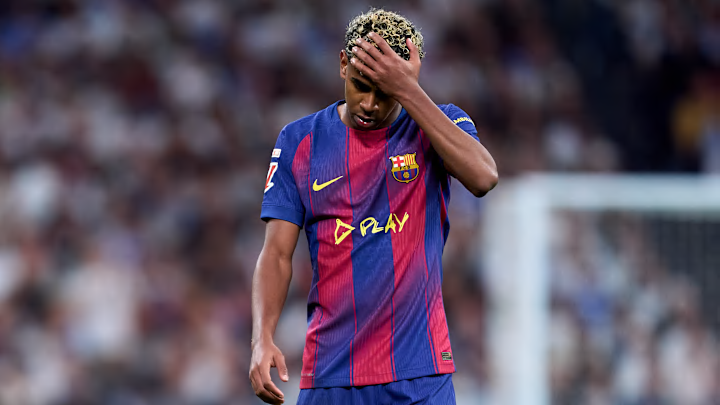El Clásico delivered everything fans could expect intensity, controversy, and high-quality football. Real Madrid edged out Barcelona 2–1 in a match that perfectly reflected the contrasting philosophies of the two sides: Barça’s structured possession game against Madrid’s ruthless directness.
The match started nervously, with both teams struggling to find rhythm. Early in the third minute, Real Madrid thought they’d earned a penalty after a messy sequence in Barcelona’s box, but VAR correctly overturned the call. That moment seemed to settle the Catalans, who began dictating possession through quick passes and constant switches of play to bypass Madrid’s pressing.
Barcelona lined up with their strongest available eleven, and it showed in phases of calm, technical buildup. Yet, Real’s threat in transition never faded. In the 13th minute, Kylian Mbappé produced a spectacular finish, only for it to be ruled offside by the narrowest of margins. A warning sign that should only be delivered to Hansi Flick's high defensive line and offside trap.
It didn’t take long for Madrid to strike again and this time it counted. In the 21st minute, Jude Bellingham sliced through Barcelona’s midfield with a vertical pass to Mbappé. His shot was precise past Wojciech Szczęsny for the opener as the high line failed to heed their first warning. Barça’s defense was caught too high, and Real punished the space behind them.
Just as Madrid looked in control, Arda Güler’s sloppy touch gifted possession to Pedri, who reacted instantly. Fermin López capitalized with a cool finish to make it 1–1, momentarily restoring balance. The goal that allowed the Blaugranas to right their wrongs in the first 20 minutes with Fermin Lopez securing parity. But only minutes later, poor marking allowed Jude Bellingham to slip free in the box and head home for 2–1, a microcosm of Barcelona’s recurring defensive fragility this season.
By halftime, the pattern was clear: Barcelona controlled the ball, Real controlled the scoreboard.
The second half turned into a tactical duel. Flick resisted early substitutions, keeping his structure intact, while Alonso’s side dropped deeper and looked to manage the rhythm. Real’s compact shape neutralized Barça’s attempts to combine through the center, forcing them wide where crosses rarely found their target.
Barcelona’s high press worked in flashes, but as the game wore on, fatigue set in and spaces began to open. Frenkie de Jong and Pedri struggled to dictate tempo under Madrid’s pressing traps, while Lamine Yamal and Alejandro Baldé found themselves isolated on the flanks.
Los Blancos, on the other hand, showed their maturity. Bellingham played deeper in the buildup, orchestrating transitions and slowing the game when needed. Mbappé stayed on the shoulder of the last defender, ready to spring on any loose touch. It wasn’t a showy half from Madrid, it was a masterclass in game management.
Barcelona pushed late with the introduction of attacking substitutes, but the urgency came too late. Real’s defensive structure held firm, Madrid were in full control of the tempo and psychology of the match as Barcelona's vulnerability being the difference.
